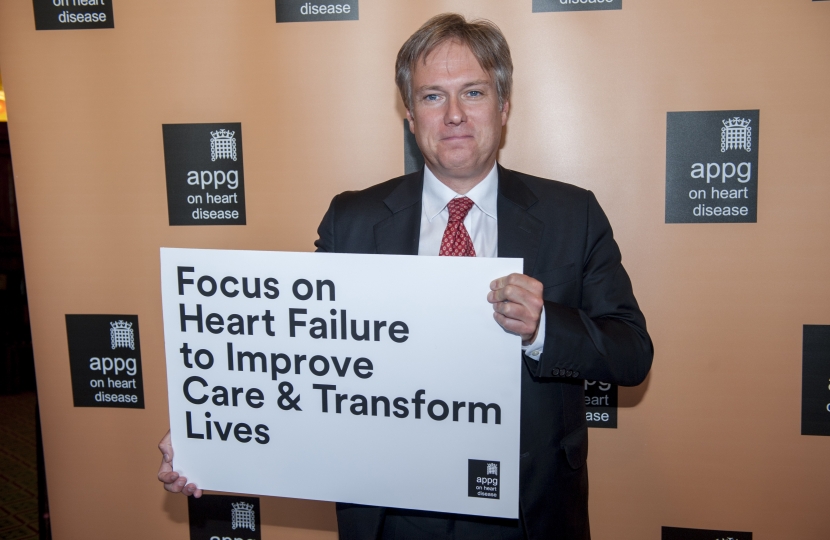
Crawley MP Henry Smith has given his support to the launch of a report which makes recommendations to improve the treatment and care of heart failure patients.
This follows an inquiry prompted by the All-Party Parliamentary Group (APPG) on Heart Disease, which received evidence from patients, health care professionals, and commissioners to identify ways to improve the outcomes and experiences for people with heart failure, their families and carers.
Henry said;
“Heart failure can have a substantial impact on the quality of life of patients, and their families and carers – both physically and emotionally.
“However, we know that with the right treatment and care their outcomes and experience can be significantly improved.
“I welcome the recommendations of the report to ensure that heart failure patients in Crawley are receiving the best possible care.”
Heart failure is a debilitating, distressing and life-limiting condition, which when untreated, has worse survival rates than some cancers.
There are 753 heart failure patients living in Crawley, however there are likely to be many more undiagnosed cases. An ageing population and improved survival from heart attacks, mean that the prevalence of those living with heart failure is on the rise.
It is also an increasingly costly problem for the NHS, accounting for 2 per cent of the total NHS budget and one million patient bed days each year.
Ten recommendations were put forward in the report, including the availability of a simple blood test, costing under £28, to all hospitals and GPs in England to speed up diagnosis. Implementing the test in primary care in line with NICE guidelines could save the health service a predicted £3.8 million each year.
Calls were also made for all patients to receive specialist input with regard to their care, as this means they are more likely to receive the right treatment and care, and is crucial in improving their outcomes and quality of life. The report also recommends better monitoring of the workforce who deal with heart failure patients to ensure that there is sufficient resource to meet demands.
